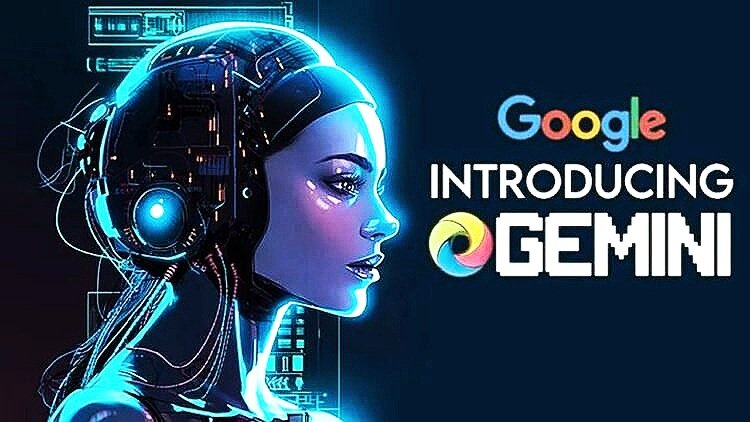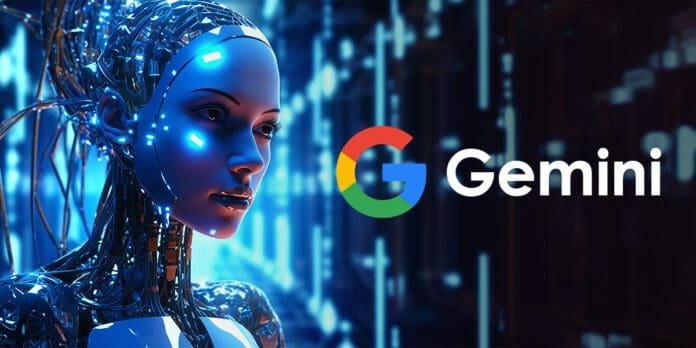Over the past nine years, Google has focused on artificial intelligence. It has been a year since ChatGPT ushered in the AI era, but now it is finally making a splash. According to Google CEO Sundar Pichai, the Gemini era of artificial intelligence has begun. Gemini, Google’s newest big language model, was teased by Pichai during June’s I/O developer conference and is now available to the public. This is a major advancement in an artificial intelligence model that will impact nearly all of Google’s products, according to Pichai and Demis Hassabis, CEO of Google DeepMind. “One of the incredible things about this moment,” Pichai remarks, “is that when you improve one underlying technology, it immediately permeates all of our products.”
“A single AI model? That is not all that Gemini is about”. A more lightweight variant, Gemini Nano, is available for Android devices without an internet connection. Starting today, Bard is built on a more robust version called Gemini Pro, which will eventually power many Google AI services. Gemini Ultra, Google’s most powerful LLM to date, appears to have been primarily developed for use in data centers and commercial applications, but there is a significantly more capable variant available.
Google is now releasing the model in multiple ways: New features for Pixel 8 Pro users are brought to you by Gemini Nano, and Gemini Pro now powers Bard. (Gemini Ultra will be released in the 2020s.) As of December 13th, developers and enterprise clients can use Gemini Pro through Google Cloud’s Vertex AI or Google Generative AI Studio. Although support for additional languages is on the way, Gemini is currently only available in English. However, according to Pichai, in the long run, the model will be incorporated into many Google products, including the Chrome browser, the search engine, and advertisements. It has arrived at the last possible moment and represents Google’s future.

The debut of ChatGPT by OpenAI a year and a week ago catapulted the firm and its product to the forefront of artificial intelligence. Google is now prepared to mount a counterattack. The tech giant, which has proclaimed itself an “AI-first” organization for almost a decade and was visibly and humiliatingly caught unawares by the quality of ChatGPT and the rapid ascent of OpenAI’s tech, is responsible for much of the key technology that underpinned the present AI boom.
Therefore, it’s time to ask the crucial question: should we? Got it! OpenAI’s GPT-4 is going head-to-head with Google’s Gemini. This has been occupying Google’s thoughts for some time. The systems have been compared side by side, and benchmarking has been carried out, according to Hassabis. Between the two models, Google conducted 32 well-established benchmarks, including one that analyzes the models’ capacity to produce Python code and another that measures their general understanding of the language. Hassabis continues, with a grin, “I think we’re substantially ahead on 30 out of 32” of those standards. “A few of them are specific. There are a few that are bigger.”
The capacity to comprehend and engage with audio and video is where Gemini truly shines in those tests, which are similar. This was intentional; multimodality was always a component of Gemini’s strategy. Google constructed a single multimodal model from the get-go instead of training two distinct models—DALL-E and Whisper—as OpenAI did. For Hassabis, “very general systems” have always piqued their curiosity. More specifically, he wants to know how to combine all of these modes so that he may take in as much information as possible from as many different sources as possible and then respond with as much diversity as possible.
The most fundamental models of Gemini can only handle text at the moment, but more advanced models, such as Gemini Ultra, can also handle audio, video, and photos. Along with that, “it’s going to get even more general than that,” according to Hassabis. It’s more like robotics-type stuff, but there are still elements like touch and action. In due time, he predicts, Gemini will have heightened perception, awareness, and accuracy while simultaneously strengthening their foundational senses. “These models simply have a natural knack for grasping the complexities of their environment.” Naturally, these models still exhibit hallucinations and continue to possess biases and additional issues. The more kids learn, though, the better, according to Hassabis.
Let's go hands-on with #GeminiAI.
Our newest AI model can reason across different types of inputs and outputs — like images and text. See Gemini's multimodal reasoning capabilities in action ↓ pic.twitter.com/tikHjGJ5Xj
— Google (@Google) December 6, 2023
However, benchmarks are just well! benchmarks. The real test of Gemini’s capabilities will come from regular people who want to use it for things like ideation, research, coding, and more. Google claims that its new code-generating system, AlphaCode 2, outperforms 85% of coding competition competitors, up from 50% for the first AlphaCode. This suggests that coding is Google’s top priority for Gemini. But according to Pichai, the model will enhance practically everything it touches.
The fact that Gemini appears to be a far more effective model is also crucial to Google. Running it is quicker and cheaper than Google’s earlier models, such as PaLM, and it was trained using Google’s own Tensor Processing Units. In addition to the new model, Google is releasing the TPU v5p, an updated version of its computing system built for data center usage in training and executing large-scale models.
As per Pichai and Hassabis, it is evident that they perceive the Gemini launch as a turning point in their respective projects. To top it all off, Google should have had Gemini prepared before OpenAI and ChatGPT swept the globe, but instead, it has been patiently working toward this paradigm for years.

Even though it has been seen as playing catch-up since declaring a “code red” following ChatGPT’s launch, Google appears to be clinging to its “bold and responsible” philosophy. Both Hassabis and Pichai have stated that they will take their time to keep up, even as we approach the holy grail of artificial intelligence: a self-improving, smarter-than-human AI with the potential to revolutionize society. “Things are going to be different as we approach AGI,” Hassabis states. We need to proceed cautiously because it’s an active technology with a cautious yet hopeful outlook.
Everything you need to know about Gemini — Google’s largest and most capable AI model — in just 90 seconds. #GeminiAI pic.twitter.com/b7j08bV0YN
— Google (@Google) December 7, 2023
By conducting internal and external tests as well as red-teaming, Google claims to have gone to great lengths to guarantee Gemini’s security and accountability. Pichai notes that enterprise-first products—the bread and butter of generative AI—have an extra responsibility to ensure the safety and dependability of user data. Hassabis does concede, however, that releasing a cutting-edge AI system into the wild might bring problems and vulnerabilities no one saw coming. “To see and learn,” he explains, “you have to release things.” There is a “safer experimentation zone” for Google’s most competent and unfettered model, and the company is releasing Ultra at a glacial pace, much like a controlled beta, according to Hassabis. Simply put, Google is making an effort to discover any potentially destructive alternative personalities within Gemini before you even realize it.

Google CEO Pichai and others have been gushing over AI’s promise for quite some time. According to Pichai, artificial intelligence (AI) will have a greater impact on society than fire or electricity. The Gemini model won’t make a splash with this first crop of users. In an ideal world, it would assist Google in overtaking OpenAI in the development of superior generative AI. (At the very worst, ChatGPT continues to win while Bard remains uninteresting and average.) Everyone at Google, including Pichai and Hassabis, believed this was the start of something monumental. Google web made the company “A Tech Giant”, Gemini could make it even bigger.




